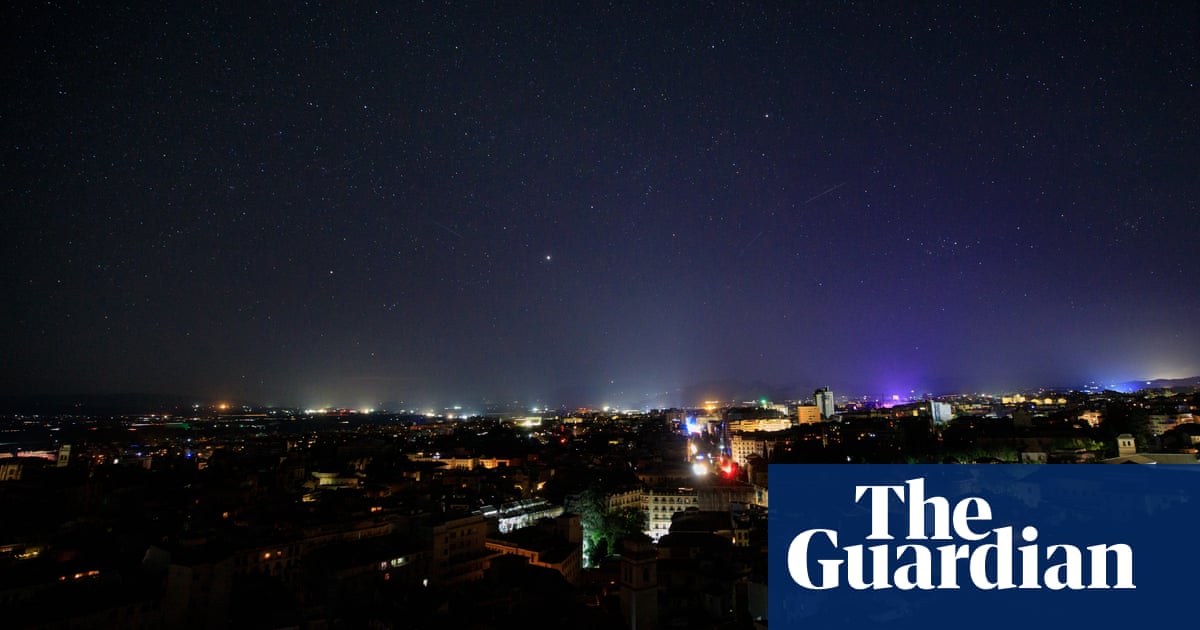Spain’s prime minister, Pedro Sánchez, has vowed to “get to the bottom” of the unprecedented power cut thathit the Iberian peninsula on Monday, as energy operators in Spain and Portugal ruled out the possibility of a cyber-attack.
The blackout, which plunged cities into darkness and left tens of thousands of travellers trapped on trains, is thought to have led to the deaths of at least five people inSpain. A family of three died from apparent carbon monoxide poisoning after using a generator in the north-west of the country, while a woman died in Valencia after her oxygen machine failed. Another woman died in Madrid in a fire started by a candle.
Speaking on Tuesday morning after electricity had been restored to both countries, Sánchez said that while it was still too early to know exactly what had gone wrong with the power supply, lessons would be learned to prevent any further large-scale blackouts.
“It’s clear that what happened yesterday can’t happen again,” he said, as he announced the creation of a commission to investigate the incident, which will also examine the role of private energy companies.
The prime minister said his administration would “get to the bottom of this matter”, carrying out any necessary reforms and enacting any necessary measures to ensure there was no repetition of Monday’s events.
Portugal’s prime minister, Luís Montenegro, said his government would ask the EU’s Agency for the Cooperation of Energy Regulators to perform “an independent audit of the electrical systems of the affected countries to fully determine the causes of this situation”.
Despite energy providers in Spain and Portugal concluding that a cyber-attack was not to blame for the loss of power, Sánchez once again stressed that “no hypothesis” was being ruled out while the country’s intelligence services continued their investigations and analysis.
The prime minister also warned people to be on the lookout for fake news that was still circulating, and dismissed suggestions that the blackout was the result of his administration’s decision to phase out nuclear power.
“Those who link this incident to the lack of nuclear power are frankly lying or demonstrating their ignorance,” Sánchez said, adding that nuclear power generation “was no more resilient” than other electricity sources.
Not long after he spoke, Spain’s highest criminal court, the Audiencia Nacional, said it had opened an investigation to determine whether “an act of computer sabotage” could have been perpetrated “against critical Spanish infrastructure”. Announcing the investigation, a judge at the court said cyberterrorism was “among the possible explanations” for the blackout.
Hours earlier, however, Spain’s electricity operator, Red Eléctrica, said the blackout was not the result of a targeted attack.
The operator’s head of services, Eduardo Prieto, said preliminary investigations meant “we can rule out a cybersecurity incident”, adding that there was nothing to suggest “there was any kind of intrusion into the Red Eléctrica control system”.
Prieto said two consecutive events, which took place at 12.32pm on Monday and then a second and a half later, pointed to a “generation disconnection” that had cut off the supply across the peninsula. While the system weathered the first event, it could not cope with the second. Prieto said the problem had originated in south-west Spain, which is where much of the country’s solar energy is generated.
The Portuguese government also ruled out a cyber-attack.
Sign up toThis is Europe
The most pressing stories and debates for Europeans – from identity to economics to the environment
after newsletter promotion
“In Portugal, we have no information related to a cyber-attack or a hostile act at this stage,” a government spokesperson told CNN Portugal, adding: “There would seem to have been an issue in the power transmission network [in Spain].”
By late Tuesday morning, all of Spain’s electricity substations were back up and running and all of the country’s power supply had been restored. Across the border in Portugal, the electricity operator REN said all substations were fully operational and the national network had been “perfectly stabilised” by 11.30pm on Monday.
In a statement early on Tuesday, Spain’s national meteorological office, Aemet, appeared to rule out the weather as a possible culprit. “During the day of 28 April, no unusual meteorological or atmospheric phenomena were detected, and nor were there sudden variations in the temperature in our network of meteorological stations,” said Aemet.
REN also said it had not sent a message circulating on social media on Monday attributing the blackout to a rare atmospheric event. The message, in Portuguese, claimed the shutdown was due to “a fault in the Spanish electricity grid linked to a rare atmospheric phenomenon”.
“REN confirms we did not put out this statement,” a spokesperson told Agence France-Presse.
All of Spain’s airports were operating on Tuesday morning, but the transport ministry advised people to check with their airlines for possible changes and to find out whether they would be able to get to the airport on public transport.
The state rail operator, Renfe, said the country’s train network, which was badly hit by the blackout, was gradually returning to normal but that local train services were suspended in regions including Murcia, Extremadura and Andalucía.
About 35,000 people were rescued from more than 100 trains after the power cut hit on Monday.
Widespread outages are unusual in Europe. In 2003, a problem with a hydroelectric power line between Italy and Switzerland caused blackouts for about 12 hours, and in 2006 anoverloaded power network in Germanycaused electricity cuts across parts of the country and in France, Italy, Spain, Austria, Belgium and the Netherlands.
